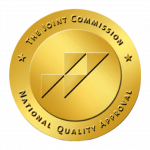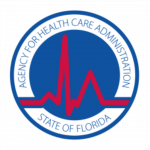Would you recognize the signs of an overdose and know what to do? Knowing what a drug overdose is and how to respond will potentially save a life.
A drug overdose is a potentially fatal event that can happen for several reasons.
- A person may take too much of a certain drug.
- Combine two or more drugs
- Mix drugs with alcohol
- Use of an adulterated drug, one of poor quality or mixed with other substances
Some signs include vomiting, slurred speech, slow breathing, or shallow breathing. Drowsiness or an inability to wake up seizures, and unconsiousness are other signs to be aware of. In some cases, an overdose may be slower to detect. For example, taking a drug with food. An elevated risk of overdose commonly occurs during intravenous drug use. Effects of injected drugs take effect more rapidly than those ingested.
Overdose Potential and Drug Abuse
Initially, signs of drug abuse are often detectable before an overdose episode. While this can occur during drug experimentation, chronic usage can lead to overdosing. In this situation, an overdose can even occur accidentally. To illustrate, changes in personality, habits, hobbies, demeanor, and temperament are drug abuse indicators. Awareness of someone abusing drugs will make you more likely to recognize an overdose.
Drugs and chemicals that make drugs are identifiable according to their classification. Regardless of classification, called drug schedule, most have accepted medical use. Even so, each drug has abuse and dependency potential. If you or a loved one uses prescribed medications, familiarize yourself with the drug class.
Knowing the side effects and risks can help prevent a life-threatening overdose. Because of this abuse potential, these drugs can create psychological and physical dependence. You will find a listing of drugs and their schedule at the DEA Website Controlled Substance Act (CSA) Scheduling.
Schedule I and II drugs have the highest potential for abuse. These drugs intend to produce a high or euphoric feeling. Hence, they can be deadly when taken at high doses or mixed with other substances.
Recognizing an Overdose
According to the Centers for Disease Control and Prevention (CDC), more than 90 Americans die each day of overdose. The CDC has launched an educational initiative to prevent death by drug overdose.
A drug overdose is a condition that occurs when a person takes too much of a controlled substance. The signs and symptoms are different depending on the type of drug used.
The signs and symptoms of an overdose can include:
- Difficulty breathing
- Rapid heartbeat
- Nausea and vomiting
- Extreme sleepiness or confusion (to the point where it is difficult to keep one’s eyes open)
- Slow, shallow, or absent breathing (respiratory depression)
- Unconsciousness
- Blue lips and nails
- Pale skin color
An overdose is a life-threatening condition where the person will have dangerously low oxygen levels in their blood or has stopped breathing. Emergency services and opioid reversal medication will be necessary.
Therefore, signs of overdose indicate a severe medical emergency, leading to death if not treated immediately.
Witnessing an overdose is frightening, and it can be unsafe to provide hands-on assistance. Therefore, do not enter areas that seem unsafe. Check the scene for drug powders or residues. If they are visible, do not risk exposure. Wait for professional emergency responders. Avoid contact with drug containers, needles, and other paraphernalia.
How You Can Help Someone Who is Experiencing an Overdose
The National Institute on Drug Abuse (NIDA) has released the guidelines to help someone who is experiencing an overdose:
Most importantly stay calm and call 911
While waiting for emergency responders try to keep the individual awake.
- Call 911 for emergency services.
- Stay with the individual
- Stay on the line with the 911 emergency operator
- If advised begin CPR if the person is not breathing
- Depending on the type of drug used, CPR may not be safe for you to perform
- Follow the guidance of emergency services
Emergency services will ask you questions about the drug taken. For example, what type, how much, what time. Stay calm, if you are able, answer the questions as best as you can.
Do not hesitate to call for emergency medical care. Your swift actions are needed.
Know the signs, save a life
Surviving an overdose should be the motivator for seeking drug abuse treatment. Additionally, there are many treatment options available.
Harm Reduction Center is a private healthcare facility offering treatment for substance abuse and addiction. Located in Boynton Beach, Florida, our goal is to provide support services, empower and assist our client’s recovery. If you or a loved one needs help, please contact us today.














